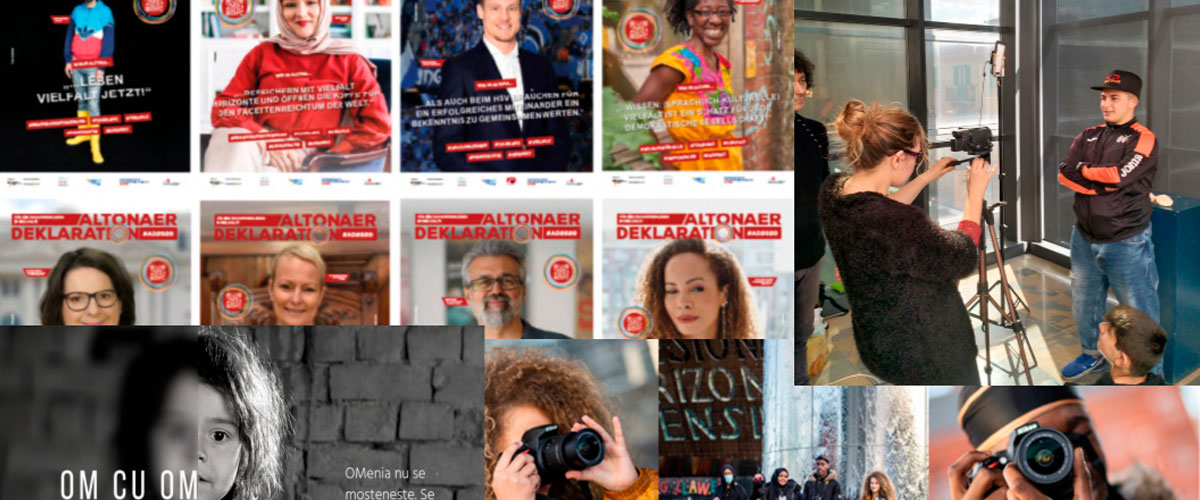To mark the culmination of the network, the final event took place online in two parts.
Part One
City anti-rumour strategies- supporting Young People to challenge stereotypes
The development of anti-rumour strategies is an evolving practice being adopted by cities across the world to counter diversity related prejudices and rumours. This network, inspired by Amadoras’s anti-rumour strategy and campaign ‘Do Not Feed the Rumour’ has supported participating cities to develop new initiatives and actions in this area. A strong focus of the network has been on supporting younger generations to identify and challenge rumours and stereotypes in their peer groups, neighbourhoods and cities. The has involved collaboration between city policy makers, educators, schools, artists, game designers, community sports clubs and cultural organisations. Schools have become the production hubs for anti-rumour campaigns and children and young people the anti-rumour agents.
Part Two
Covid: The exposure of discrimination and inequality in the EU
This event was the second part of the final event of the the Rumourless cIties good practice network. The work of the network was substantially impacted through Covid as it stopped many of the face to face peer exchanges that were planned. However, what Covid also did was to provide an x-ray image of what and who is essential to maintaining our current lifestyles . What Covid has exposed is that the least-esteemed professions were essential and that the most prestigious were mainly parasitic. What Covid has also exposed is how its impact has disproportionately been felt within migrant communities . The reasons for this are related to discrimination and inequality.

 Final Event
Final Event




